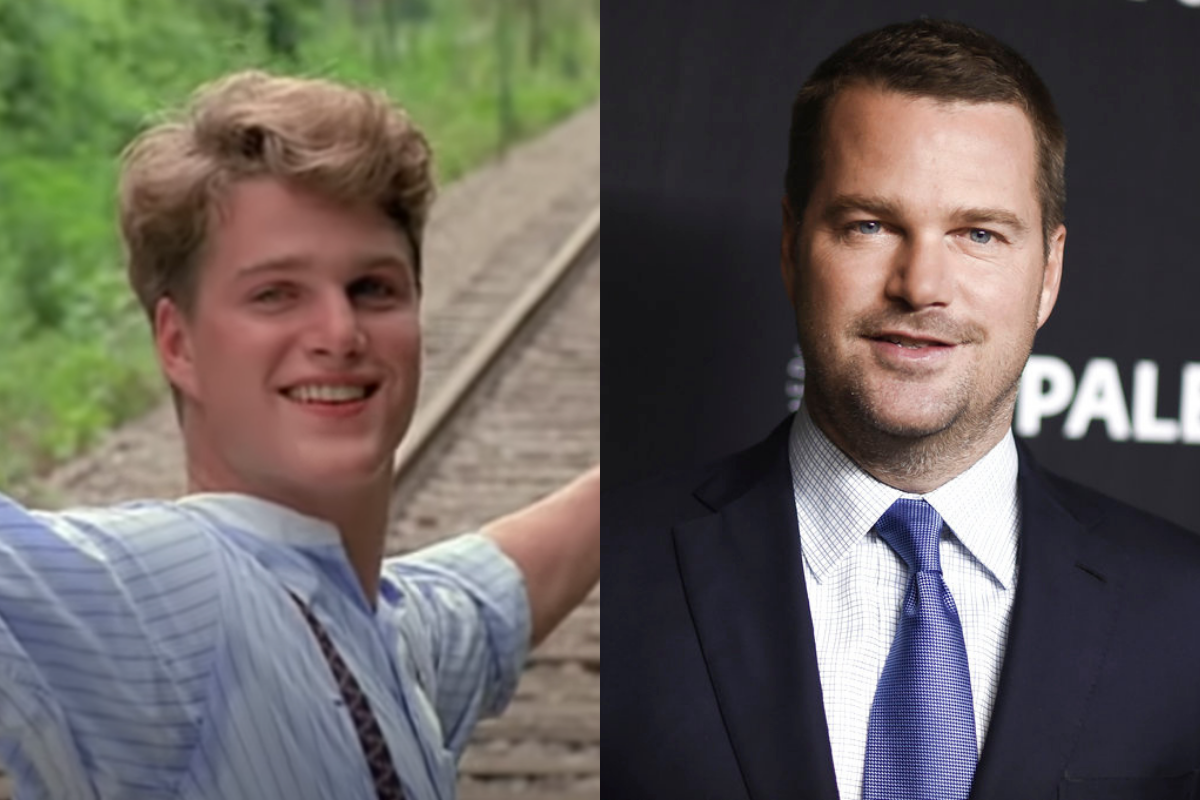
Though Fried Green Tomatoes is celebrated for its powerful women, the men in the film — while fewer in number — are far from decorative. They are meaningful, dynamic, and at times, disturbing reflections of social roles, emotional neglect, patriarchal force, and quiet integrity. Each man we meet in the film represents a type, an impact, and a choice, especially in how they affect the lives of the women around them.
Let’s now delve into each major male character, one by one.

Frank Bennett – The Manifestation of Violent Control
-
Role: Ruth’s abusive husband
-
Defining Traits: Controlling, violent, possessive, narcissistic
-
Psychological Profile: Frank is a textbook abuser. He wields power through intimidation and isolation. What makes him terrifying isn’t just the physical harm he causes Ruth, but the systemic power he holds: as a white man in the South, as a husband, as a father with legal rights over his child. He believes in entitlement — to his wife, to her loyalty, to her silence.
-
Symbolism: Frank represents the unreformed patriarchy. He isn’t just a villain — he’s a system in human form. His death is both literal and metaphorical: the ending of domination, and the birth of a new life for Ruth.
Buddy Threadgoode (Sr.) – The Lost Promise
-
Role: Idgie’s older brother
-
Defining Traits: Charismatic, kind-hearted, protective, open-minded
-
Psychological Profile: In his brief but luminous screen time, Buddy is shown as deeply affectionate, especially with Idgie. He’s one of the few characters who seems genuinely attuned to the feelings of others, particularly the women around him. His death is a turning point — not just for Idgie’s trauma, but for the whole thematic arc of the film. He represents what kind, progressive masculinity could have been.
-
Symbolism: Buddy is the lost golden boy — the hopeful alternative to toxic manhood, who dies too young for the world to benefit from him. His absence speaks louder than some characters’ presence.
Sheriff Grady Kilgore – The Friendly Enforcer with Inner Conflict
-
Role: Local sheriff and longtime friend of Idgie
-
Defining Traits: Protective, loyal, morally flexible, socially cautious
-
Psychological Profile: Grady is stuck between two loyalties — the law he’s sworn to uphold, and his bond with Idgie, a woman who clearly lives outside the law’s confines. He tries to nudge her toward “respectable” behavior (even suggesting she settle down), but ultimately chooses friendship and empathy over rigid duty.
-
Ambiguity: Did he suspect Idgie and Ruth were in a relationship? Did he know they were involved in Frank’s disappearance? Probably yes — and yet, he chooses selective blindness, showing the rare but real male trait of choosing people over systems.
-
Symbolism: Grady represents the law’s gray zone — not oppressive, not heroic, but human. He reflects the struggles of men trying to evolve within the roles they inherited.
Buddy Jr. (“Stump”) – The Symbol of Hope and Regeneration
-
Role: Ruth’s son
-
Defining Traits: Playful, kind, adaptive, resilient
-
Psychological Profile: Though a child, Stump’s emotional journey is subtle but impactful. He loses an arm in an accident, yet he remains joyful, spirited, and loving. Raised in a household led by two women — unconventional by 1930s standards — he grows up free of judgment and full of warmth.
-
Symbolism: Stump represents the next generation of men, molded not by patriarchy but by compassion and inclusion. He is the future many women in the film fought for — not just for themselves, but for their sons.
Ed Couch – The Passive Patriarch
-
Role: Evelyn’s husband
-
Defining Traits: Apathetic, dismissive, emotionally unavailable
-
Psychological Profile: Ed is not abusive like Frank, but he’s a silent killer of Evelyn’s spirit. He tunes her out, invalidates her fears, ignores her feelings, and takes her presence for granted. He doesn’t yell or hit — he simply doesn’t see her. And in doing so, he slowly extinguishes her sense of worth.
-
Symbolism: Ed represents complacent masculinity — the kind that doesn’t intend harm, but causes it through emotional neglect. His character is a warning: love without attention isn’t love at all.
Cleo Threadgoode – The Silent Partner (And Possible Myth)
-
Role: Ninny’s husband, mentioned in passing
-
Defining Traits: Gentle, quiet, background presence
-
Psychological Profile: Though Cleo is not seen on screen, he looms in the periphery as the husband who (possibly) gave Idgie a way to exist under a different identity — if we believe the theory that Ninny is Idgie. Even without that theory, Cleo is notable for not interfering, not controlling, and not limiting the women in his life.
-
Symbolism: He is the antithesis of Frank — not because he “helps” women, but because he doesn’t obstruct them. In a world where men often act as walls, Cleo is a door left ajar.
🧭 Conclusion: The Many Faces of Masculinity
The men of Fried Green Tomatoes offer more than contrast to the women — they represent the varied forces that women must navigate in society:
| Name | Archetype | Represents |
|---|---|---|
| Frank Bennett | Abuser | Toxic masculinity, domination |
| Buddy Threadgoode | Idealized Brother | Lost allyship, emotional vulnerability |
| Grady Kilgore | Friendly Lawman | Moral compromise, reluctant progress |
| Buddy Jr. | Future Man | Innocence, potential for healing |
| Ed Couch | The Neglectful Husband | Emotional vacancy, silent oppression |
| Cleo Threadgoode | The Quiet Supporter | Non-intrusive masculinity |
These characters show us that masculinity — like femininity — is not singular. It can be loving or cruel, supportive or oppressive, present or absent. The film doesn’t paint all men as villains — it simply asks them to choose better, love better, be better.
